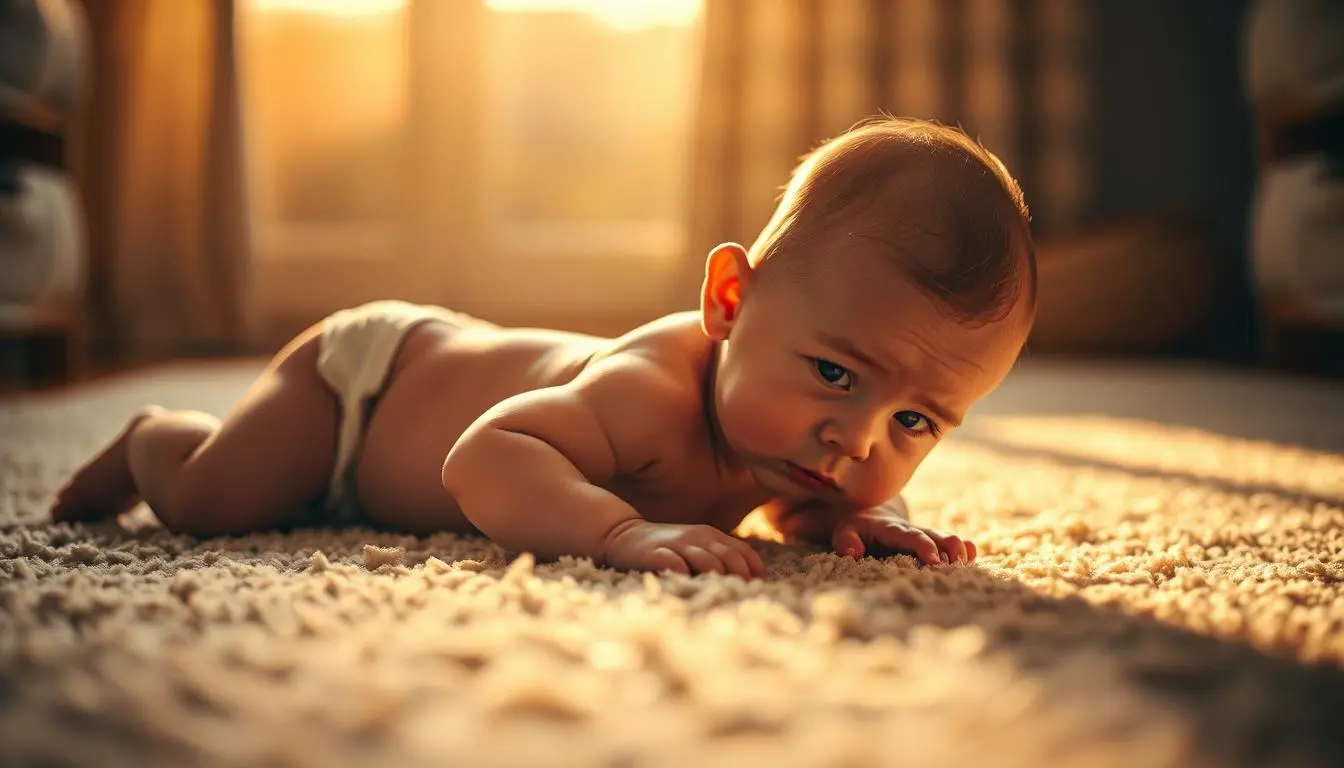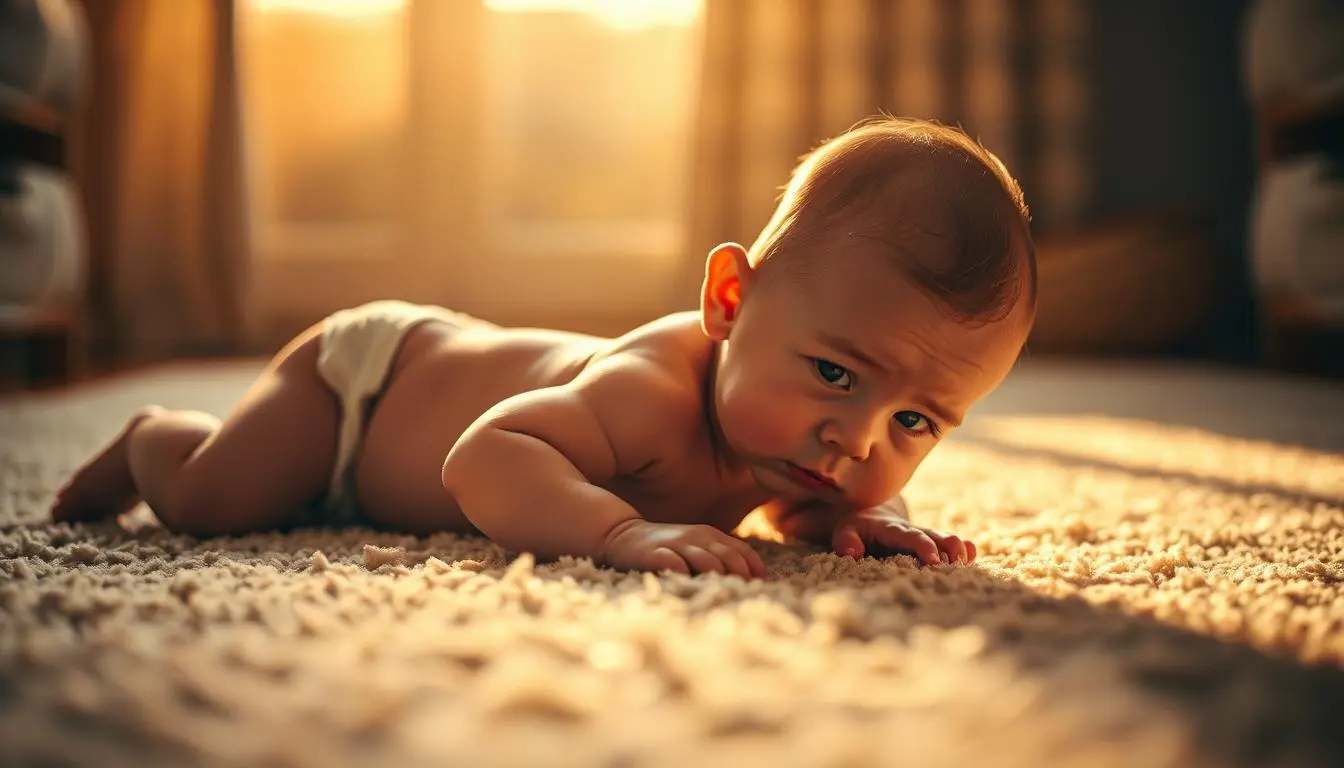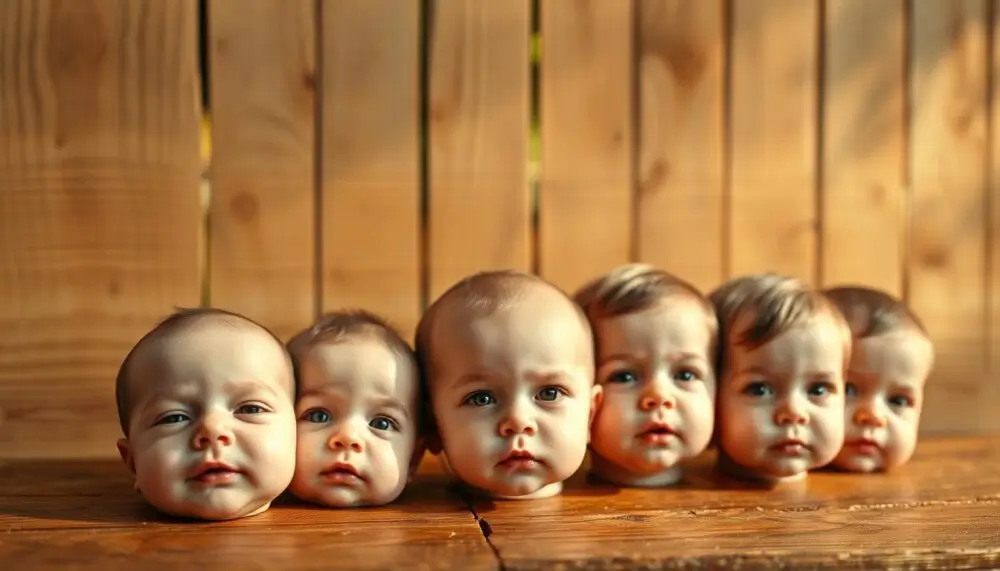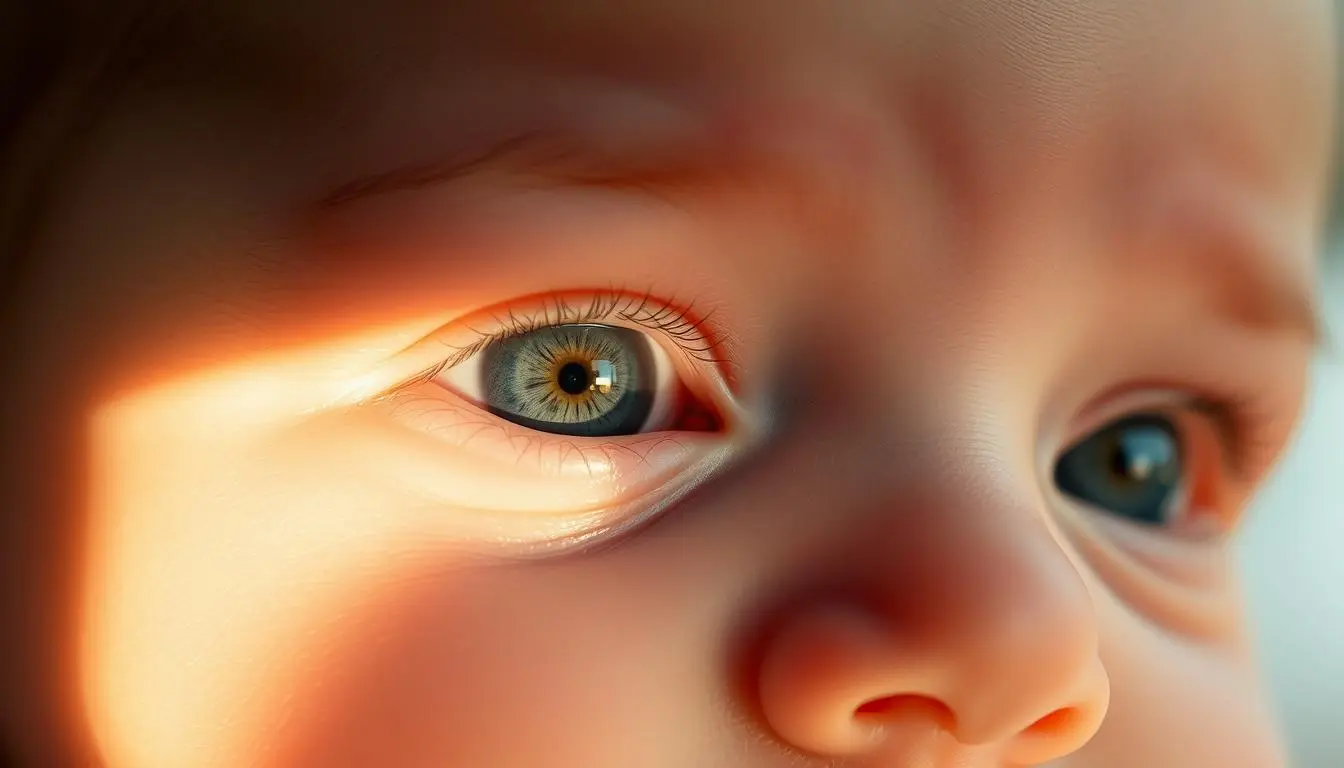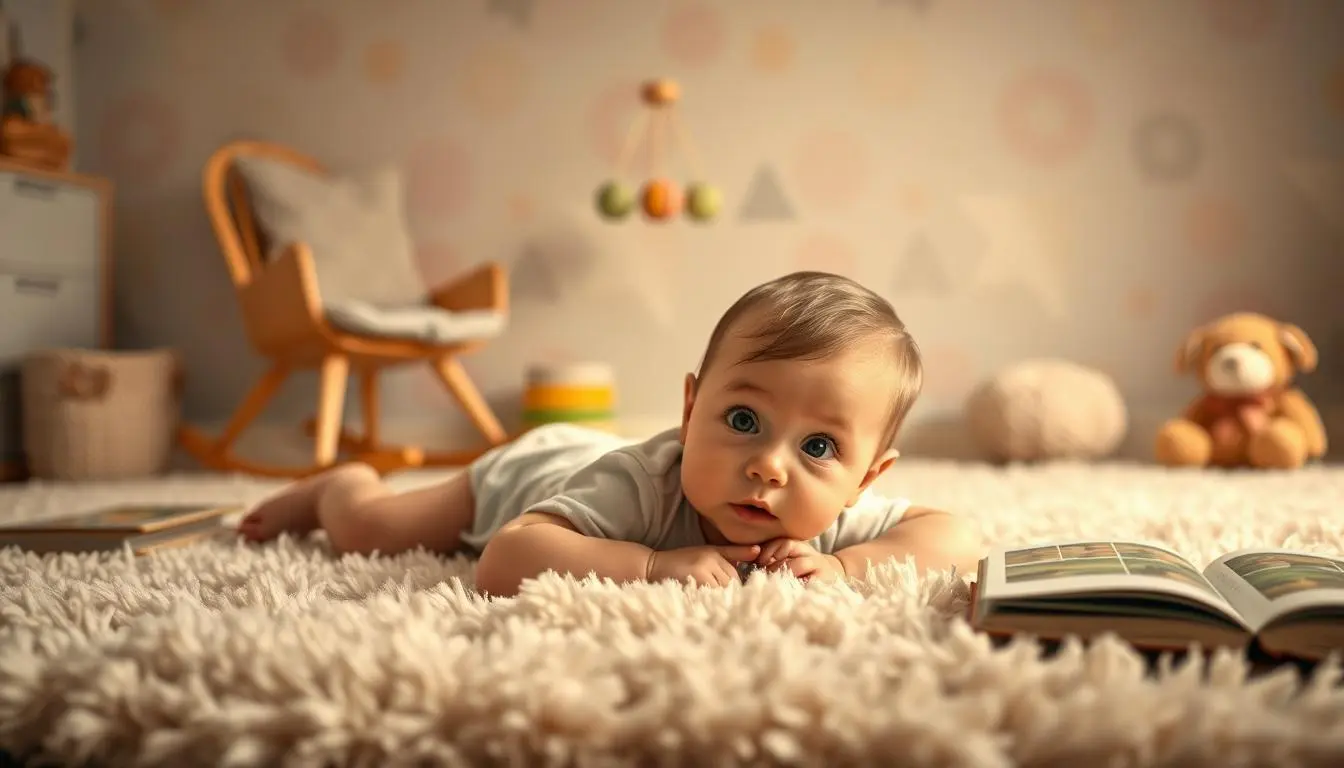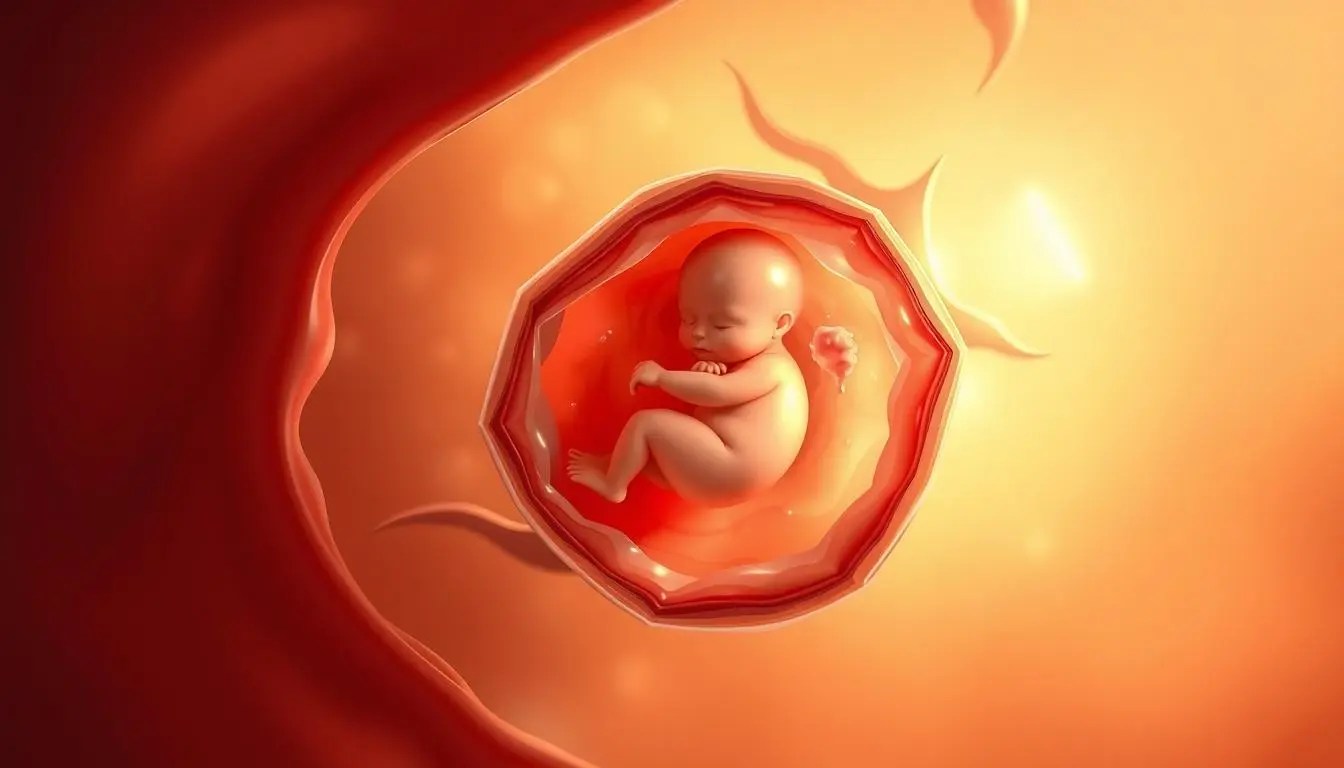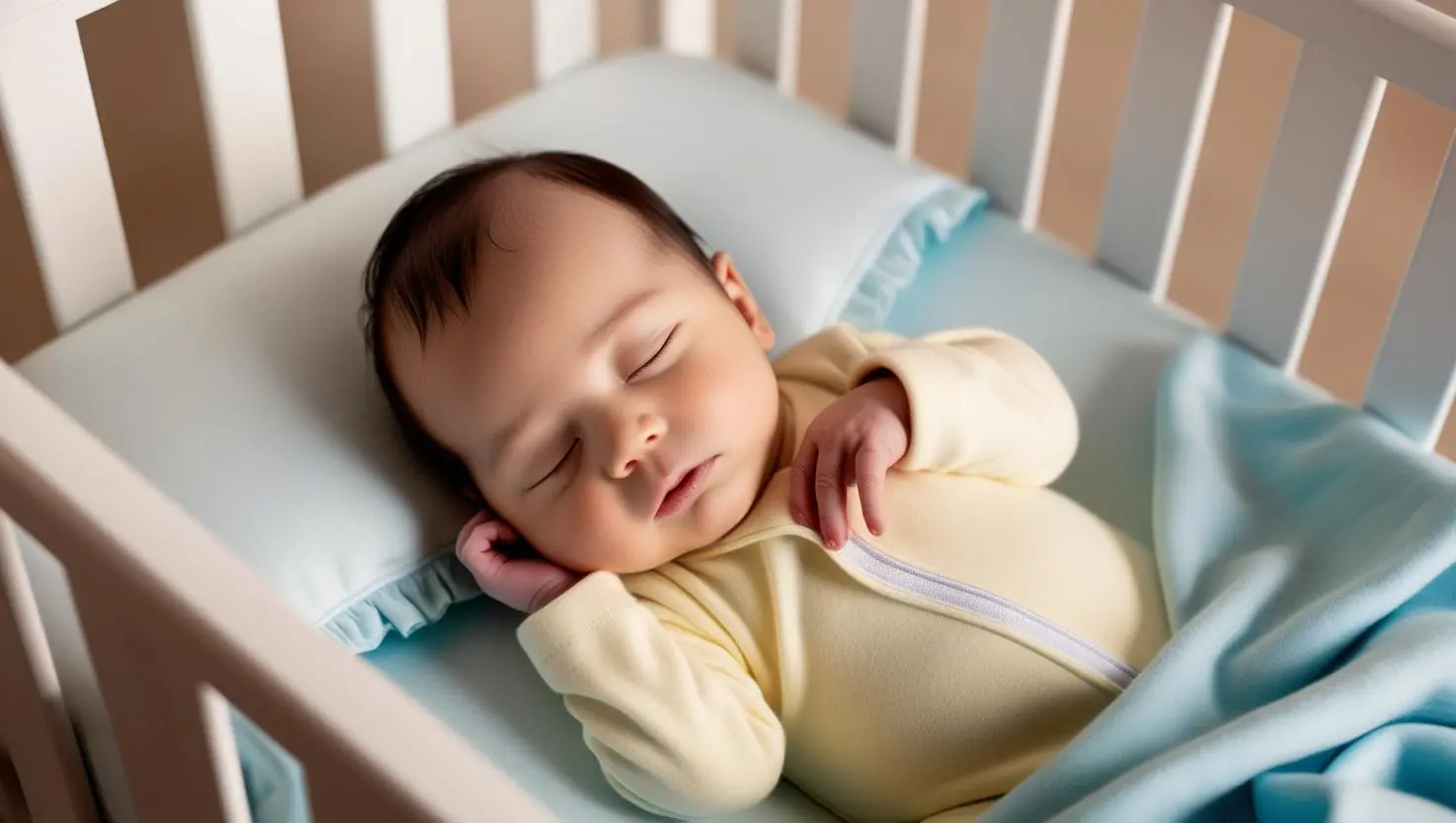why do babies smile in their sleep? Observing a baby smiling reflex can be a heartwarming experience for parents and caregivers. It’s a universal sign of joy and contentment, but have you ever wondered what triggers this adorable reaction, especially during sleep?
The phenomenon of babies smiling while asleep is not only endearing but also intriguing. It raises questions about what do baby smiles mean and whether they are indicative of the baby’s emotional state or just a reflex action. Understanding this behavior can provide insights into a baby’s development and emotional well-being.
This article will explore seven sweet reasons behind this endearing behavior, shedding light on the mysteries of infant smiles during sleep.
Key Takeaways
- Understanding the significance of a baby’s smile during sleep.
- Exploring the possible reasons behind a baby’s smiling reflex.
- Insights into the emotional and developmental aspects of infant smiling.
- Discovering how a baby’s sleep patterns relate to their smiling.
- Learning about the different stages of infant development and smiling.
👶 Must-Have Baby Products Every Parent Needs – Shop Top Picks on Amazon
From newborn essentials to toddler favorites, the right baby products can make parenting smoother, safer, and even more joyful. Whether you’re shopping for your own little one or picking the perfect baby shower gift, we’ve got you covered!
🍼 Diapers, wipes, bottles & feeding gear
🛏️ Cribs, bassinets, baby monitors & nursery must-haves
🧴 Lotions, shampoos & sensitive-skin baby care
🎁 Gift sets, toys & accessories
👉 Browse the best baby products on Amazon
✔️ Trusted brands like Pampers, Enfamil, Aveeno Baby, and Graco
✔️ Parent-approved with thousands of 5-star reviews
✔️ Fast delivery & easy returns
Everything you need for baby’s first year — all in one place. 💗
The Science Behind Baby Sleep Patterns
Newborn sleep cycles are a critical aspect of their development. Understanding these cycles is essential for parents to provide the best care for their babies.
Understanding Sleep Cycles in Newborns
Sleep cycles in newborns are different from those in adults. Newborns have shorter sleep cycles, typically lasting around 20-30 minutes, and spend more time in REM (Rapid Eye Movement) sleep, which is crucial for brain development.
During REM sleep, babies’ brains are active, processing and consolidating information. This stage is vital for neurological development and maturation.
REM vs. Non-REM Sleep in Babies
Babies, like adults, experience different stages of sleep, including REM and non-REM sleep. Non-REM sleep is further divided into stages, with the deeper stages being crucial for physical restoration.
In newborns, REM sleep accounts for a significant portion of their total sleep time, gradually decreasing as they mature. Understanding the balance between REM and non-REM sleep can help parents better support their baby’s overall development.
The distinction between these sleep stages is not just academic; it has practical implications for how parents care for their babies, including how they respond to their needs during different sleep stages.
Why Do Babies Smile in Their Sleep?
Babies smiling in their sleep is a universal experience for many parents, yet the underlying mechanisms and meanings behind these smiles are multifaceted. Smiling during sleep can be an indicator of various developmental processes in infants.
The Difference Between Conscious and Unconscious Smiles
Understanding whether a baby’s smile is conscious or unconscious can provide insights into their neurological development. Conscious smiles are typically a response to external stimuli, such as a parent’s voice or face, indicating a level of awareness and interaction with the environment. On the other hand, unconscious smiles during sleep are thought to be related to the baby’s brain processing and consolidating memories and emotions.
Research suggests that the distinction between these types of smiles can be subtle, and not all smiles during sleep are purely unconscious. The mechanisms behind smiling during sleep are complex and involve various stages of sleep, including REM (Rapid Eye Movement) and non-REM sleep.
When Babies Start Smiling in Their Sleep
The age at which babies start smiling in their sleep can vary, but it is generally observed that smiling during sleep can start as early as a few weeks after birth. This behavior is considered a normal part of development and can be an indicator of healthy neurological function.
| Age | Typical Sleep Smile Behavior | Developmental Significance |
|---|---|---|
| 0-4 weeks | Initial reflex smiles | Neurological development |
| 4-8 weeks | Smiling during sleep becomes more frequent | Processing daily experiences |
| 2-4 months | Smiles during sleep may become more pronounced | Emotional processing and bonding |
Understanding what do baby smiles mean can help parents better connect with their infants and appreciate the developmental milestones their babies are achieving. Smiling during sleep is just one of the many ways babies communicate and develop emotionally and neurologically.
Reason1: Reflex Smiles and Neurological Development
One of the primary reasons babies smile in their sleep is due to reflex smiles, which are closely linked to their neurological development. Reflex smiles are involuntary and can occur even when a baby is not awake, making them a fascinating aspect of infant development.
How the Baby Smiling Reflex Works
The baby smiling reflex is a natural response that is not necessarily triggered by external stimuli. It is believed that this reflex is controlled by the brain’s stem, which is responsible for regulating basic functions such as breathing, heart rate, and other involuntary actions. As the neurological system matures, the frequency and intensity of these reflex smiles can change, reflecting the baby’s overall neurological development.
“The smiling reflex in infants is an indicator of a healthy neurological system,” says Dr. Jane Smith, a pediatric neurologist. “Observing these reflexes can provide valuable insights into the baby’s brain development.”
Milestones in Facial Expression Development
As babies grow, their facial expressions become more complex and coordinated. Some key milestones include:
- The first smiles, often seen around 6-8 weeks, which can be reflex smiles.
- By 3-4 months, babies start to show more intentional smiles in response to social interactions.
- At around 6 months, babies begin to exhibit a range of emotions through their facial expressions, including joy, surprise, and sometimes even frustration.
These milestones are crucial indicators of a baby’s neurological and social development. As their brains mature, babies are able to control their facial muscles more effectively, leading to more nuanced expressions.
Reason2: Processing Daily Experiences
Processing daily experiences is a crucial aspect of a baby’s development, and it continues even when they’re asleep. During sleep, babies’ brains are actively working to consolidate memories and process the interactions they’ve had. This processing is vital for their emotional and cognitive development.
How Babies Consolidate Memories During Sleep
Research has shown that babies, even from a very young age, are capable of forming memories. Memory consolidation during sleep is a process where the brain strengthens and processes the information gathered during the day. For babies, this means that the experiences they have, whether it’s playing with a toy or interacting with a caregiver, are being filed away for future reference. Studies have indicated that sleep plays a critical role in this memory consolidation process, helping babies to learn and remember.

The Connection Between Daytime Interactions and Sleep Smiles
The interactions babies have during the day can significantly influence their sleep patterns, including their smiles. Positive interactions, such as playful activities or soothing moments with caregivers, can lead to more smiles during sleep. This connection suggests that babies are processing these positive experiences even when they’re asleep, reinforcing the idea that their brains are actively working on emotional and social development.
- Positive reinforcement through play
- Emotional bonding through touch and voice
- Exposure to new environments and experiences
These factors contribute to a baby’s overall sense of security and happiness, which can manifest as smiles during sleep.
Reason3: Dreaming and Brain Development
Dreaming is a complex process, but research suggests that it might start earlier than we think, even in infancy. As we explore the third reason behind babies smiling in their sleep, we delve into the fascinating world of infant brain development and the possibility of dreaming.
The notion that babies might dream is both intriguing and controversial. While we can’t directly ask a baby about their dreams, observing their sleep patterns and brain activity during sleep offers valuable insights into their neurological development.
Do Babies Actually Dream?
The question of whether babies dream is a topic of ongoing debate among researchers. Some studies suggest that infants as young as a few months old may experience some form of dreaming, although it’s likely to be different from the complex dreams adults have.
REM sleep, characterized by rapid eye movements, is when most dreams occur in adults. Babies spend a significant amount of time in REM sleep, which could indicate that they are processing and consolidating memories, or possibly even dreaming.
Brain Activity During Sleep Smiles
Research into brain activity during infant sleep has shown that smiling can be associated with increased activity in areas of the brain related to emotional processing. This suggests that even if babies are not dreaming in the same way as adults, their brains are actively processing and responding to emotional stimuli.
The connection between brain development and sleep smiles is complex. Studies using EEG to measure brain activity have found that during smiles in sleep, there’s heightened activity in regions associated with emotional regulation and social cognition.
This brain activity during sleep smiles could be an indicator of the baby’s neurological development, reflecting their growing ability to process emotions and interact with their environment.
Reason4: Emotional Processing and Bonding
Sleep is not just a period of rest for babies; it’s also a critical time for emotional processing and bonding. During sleep, babies process the emotions they’ve experienced during the day, which is vital for their emotional development.
How Sleep Helps Babies Process Emotions
Babies experience a range of emotions from birth, and their ability to process these emotions is closely linked to their sleep. Research suggests that sleep helps in consolidating emotional experiences, making it easier for babies to regulate their emotions as they grow.
Emotional regulation is a critical skill that develops over time, and sleep plays a significant role in this process. When babies sleep, their brains are actively processing the emotional stimuli they’ve encountered, helping them to differentiate between various emotional states.
The Role of Sleep in Social Development
Sleep also significantly impacts a baby’s social development. A well-rested baby is more likely to be calm and responsive during interactions, fostering a healthier bond between the baby and their caregivers.
The quality of sleep can influence a baby’s social and emotional development, affecting their ability to form secure attachments. Secure attachment is crucial for a child’s social development, as it influences their expectations and behaviors in future relationships.
| Aspect | Description | Impact on Development |
|---|---|---|
| Emotional Processing | Sleep helps consolidate emotional experiences. | Enhances emotional regulation. |
| Social Development | Quality sleep fosters healthier caregiver-baby interactions. | Promotes secure attachment and social skills. |

Reason5: Physical Comfort and Digestive Development
Smiling during sleep can be an indicator of a baby’s physical comfort and the development of their digestive system. As babies grow, their bodies undergo numerous changes that can affect their sleep patterns, including the various baby sleep stages.
The Comfort Connection: Feeling Secure During Sleep
Feeling secure and comfortable is crucial for a baby’s overall well-being, especially during sleep. When a baby feels physically comfortable, they are more likely to have a restful sleep, which can sometimes manifest as a smile. This comfort can be influenced by factors such as a warm and cozy sleep environment, a comfortable position, and the absence of discomfort or pain.
Physical comfort is closely linked to a baby’s sense of security. When their basic needs are met, and they feel safe, they are more likely to relax fully during sleep, potentially leading to smiles.
Digestive System Development and Gas Reactions
The development of a baby’s digestive system is another factor that can influence their sleep. As their digestive system matures, it can lead to various reactions, including gas and discomfort. Sometimes, a baby’s smile during sleep might be related to the processes occurring in their digestive system.
A baby’s digestive system is still learning to process different foods, whether breast milk or formula, and this process can sometimes cause discomfort. However, when the digestive system is functioning relatively smoothly, it can contribute to a more peaceful sleep, occasionally marked by a smile.
Conclusion: Cherishing Those Precious Sleep Smiles
Babies smiling in their sleep is a heartwarming phenomenon that has been explored through various lenses, from neurological development to emotional processing. Understanding what do baby smiles mean can provide valuable insights into their growth and development. The baby smiling reflex is an essential aspect of their neurological development, and witnessing it can be a joyous experience for parents.
As we’ve seen, there are multiple reasons behind these sleep smiles, including reflex actions, memory consolidation, dreaming, emotional regulation, and physical comfort. Each of these factors contributes to the complex and fascinating process of a baby’s development. By recognizing the significance of these smiles, parents can cherish these moments and deepen their bond with their child.
As you watch your baby smile in their sleep, remember that these precious moments are not just adorable; they’re also significant milestones in their growth. By understanding the baby smiling reflex and its underlying causes, you can better appreciate the intricate processes that shape your child’s development.
FAQ
What does it mean when a baby smiles in their sleep?
When a baby smiles in their sleep, it can be due to various reasons such as reflex smiles, processing daily experiences, dreaming, emotional processing, or physical comfort. Research suggests that these smiles are a natural part of a baby’s neurological and emotional development.
Is my baby dreaming when they smile in their sleep?
While it’s difficult to say for certain whether babies dream like adults do, research suggests that they do experience REM sleep, which is when dreams occur. Brain activity during this stage can cause smiles, but it’s not conclusive evidence that they are dreaming in the same way adults are.
At what age do babies start smiling in their sleep?
Babies can start smiling in their sleep from a relatively early age, often within the first few weeks of life. As they develop, the frequency and variety of their smiles during sleep can increase.
Can a baby’s smile in their sleep be a sign of their emotional development?
Yes, a baby’s smile in their sleep can be an indicator of their emotional development. Smiling is a key aspect of social and emotional development, and observing smiles during sleep can provide insights into a baby’s emotional processing and bonding.
How do sleep cycles affect a baby’s smiles?
Babies experience different stages of sleep, including REM and non-REM sleep. REM sleep is associated with brain activity, which can lead to smiles. Understanding these sleep cycles can help parents appreciate the complexities of their baby’s sleep patterns and the reasons behind their smiles.
Are reflex smiles in babies related to their neurological development?
Yes, reflex smiles are closely linked to a baby’s neurological development. The smiling reflex is an innate response that is present from birth, and as the baby’s neurological system matures, their ability to smile in response to different stimuli evolves.
Can daytime interactions influence a baby’s smiles during sleep?
Research suggests that there is a connection between daytime interactions and a baby’s smiles during sleep. Positive interactions during the day can contribute to a baby’s emotional well-being and may be reflected in their smiles during sleep.

